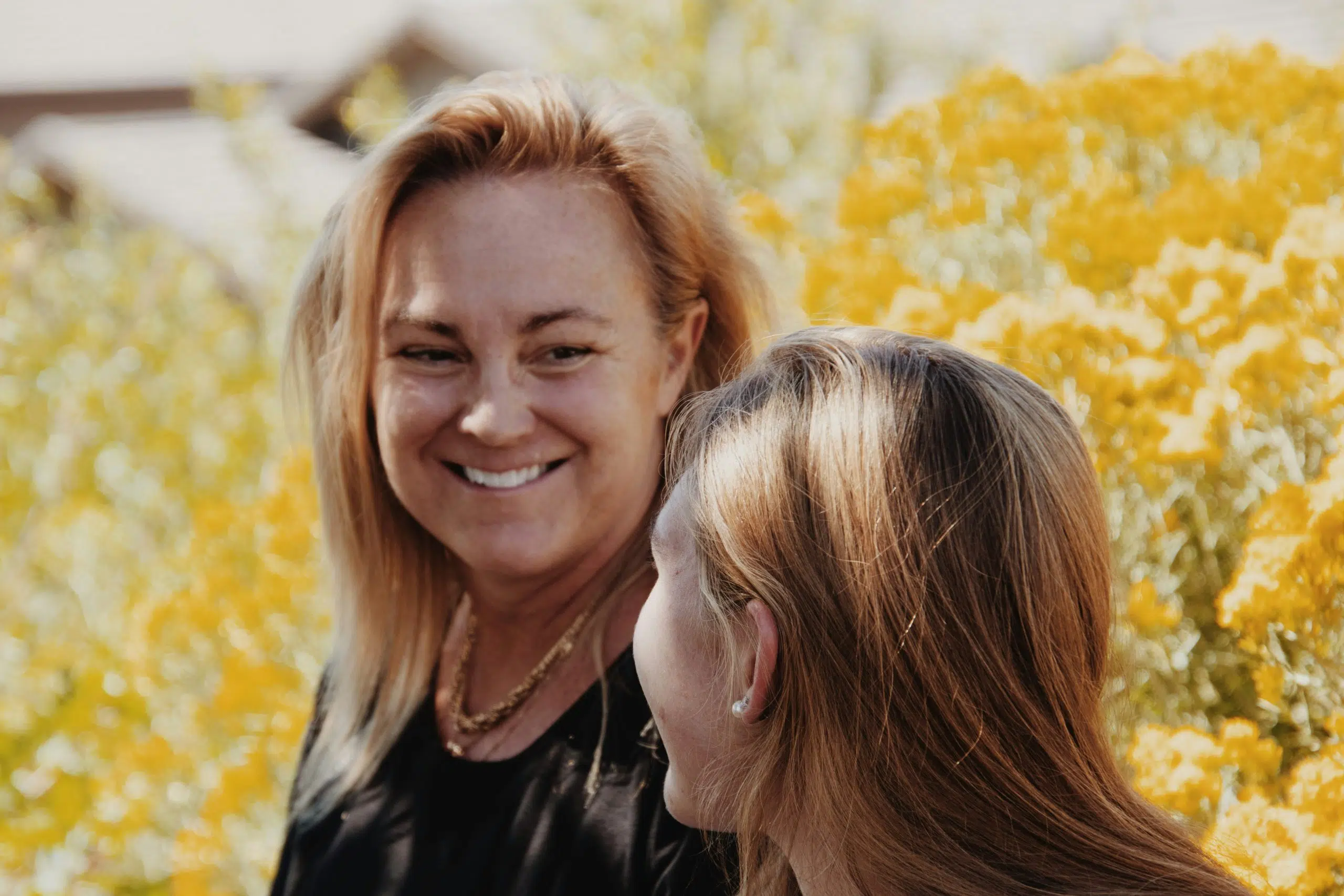Families and Carers
Family members and carers are often a main source of daily support for an autistic /neurodivergent child, young person, or adult.

Why are families often the main source of support?
We know from research that more than two in three autistic adults in the UK do not get the support they need.
- Up to 70% of autistic people experience one co-occurring mental health condition with 40% experiencing two or more.
- Only 14% of autistic adults and 11% of families said that there were enough mental health services in their area.
- Fifty per cent of parents said their child had to wait more than a year for support at school.
- There are lengthy wait lists for autism assessments (meaning that access to adjustments in schools or education settings are often stalled).
- Autistic CYP are up to four times more likely to be excluded from school
- Only 23% of autistic young people complete university
- Just 22% of autistic adults are in employment.
These gaps in services and support are often filled by family members. The types of support provided may include:
- Advocating for adjustments at school or university
- Home schooling
- Support with daily living.
- Supporting a loved one with co-occurring mental health support needs (e.g. re-feeding a loved one with an Eating Disorder at home in the community).
- Help with accessing services.
- Help with accessing benefits and additional support
- Providing an alternative to hospital admission when adjustments to services are not made or available (creating a neuro-affirmative space at home or in the community)
- Financial support
- Providing longer term accommodation (a safe place to live)
- Liaising with health and social care
- Help with accessing healthcare.
- Ensuring safety
- Providing social, emotional, and psychological support
- Being a safe person
- Support with cooking, meal-times, dressing and self-care.


What are family experiences when supporting an autistic/neurodivergent child, young person, or adult?
Families often describe feeling isolated, shamed, blamed, forgotten, and left to cope on their own, with limited access to psychoeducation, training or resources that would help them to navigate daily life with their loved ones.
Here is one story shared by a family:
When their 13-year-old daughter first became ill with anorexia, this couple felt failed by the services they assumed would help. After 3 years of trying to find the right support, their daughter got an autism diagnosis. However, as CAMHS classified her as low needs (even with the ongoing eating disorder) they were discharged with no psychoeducation or access to further, specialised support leaving them feeling even more adrift.
Through the NCAMH material, the whole family have gained powerful new understandings of both their daughter and themselves. They have used the practical and insightful materials to support their daughter through creating a safe environment where her autistic traits are celebrated and supported. Over time this has helped her become more regulated and more accepting of her autistic identity which, in turn, is supporting her in starting to overcome the eating disorder.
What support can families/carers receive from NCAMH?
We have designed a series of short training courses for parents as practitioners.
Providing you with access to essential knowledge, skills, practical resources and strategies when supporting neurodivergent family members.

Key features of the short courses:
- All short courses are neuro-affirmative, placing autistic voices and lived experiences at the centre of training design and delivery.
- All courses are pre-recorded and available online so you can complete at your own time and pace.
- Uses a wide range of learning materials and methods (videos, podcasts, case studies, recordings, and articles).
- Access to downloadable workbooks, worksheets, psychoeducation, and resource packs for your own use.
- Access to practical tools and strategies that you can use at home and when advocating for adjustments in other settings.
- All the resources and materials are evidence based and draw on the latest research and practice.


There are twelve short courses all approved by the British Psychological Society (BPS) for CPD.
You can take these short courses (in modular order) or access the course that you think would be most helpful for you at the current time.
For example, if you are supporting a loved one at home with an Eating-Disorder/Disordered Eating pattern then the course on Autism and Eating Disorders would be a good place to start.
If you are seeking to understand more about the neurodevelopmental profile and supporting the development of positive autistic identity, then the course on Understanding Autism and Mental Health is a great place to begin.
If you are advocating to ensure that your loved one has access to the right services, with meaningful adjustments (including sensory, communication and information processing) then Module 2 is an excellent course with many ready to use tools/templates.
If you would like to book a family consultation session to discuss your current support needs and identify what training may be most helpful, please e-mail hello@ncamh.co.uk and we will get in touch with you.
If you are a local commissioner seeking to provide families/carers with access to crucial psychoeducation, tools and strategies and for the training to be supported with live online zoom support sessions please e-mail hello@ncamh.co.uk or call 07545 190915 to discuss your training support needs (discounts are available for multiple course bookings).
What is included in each of the courses?
Please click on each of the links below to find out more about what is included in the twelve short courses:
Training Courses
Option to build towards the Cert/Dip in Autism and
Mental Health one module at a time.
Our online courses allow you to study at your own pace in your free time.
BPS Approved Course
Module 1 - Understanding Autism and Mental Health

A two-day online training.
Module 1 in the BPS Approved Cert/Dip in Autism and Mental Health
Price £192
BPS Approved Course
Module 2 - Autism and Mental Health, "Core Skills and Adjustments to Practice,"

A three-day online training.
Module 2 in the BPS Approved Cert/Dip in Autism and Mental Health
Price £260
BPS Approved Course
Module 3: Sensory Awareness and Regulation

A one-day online training.
Module 3 in the BPS Approved Cert/Dip in Autism and Mental Health
Price £160
BPS Approved Course
Module 4 - Autism, Alexithymia, Masking and Camouflaging

A two-day online training.
Module 4 in the BPS Approved Cert/Dip in Autism and Mental Health
Price £192
BPS Approved Course
Module 5 - Autism and Anxiety

A two-day online training.
Module 5 in the BPS Approved Cert/Dip in Autism and Mental Health
Price £192
BPS Approved Course
Module 6 - Autism and Depression

A two-day online training.
Module 6 in the BPS Approved Cert/Dip in Autism and Mental Health
Price £192
BPS Approved Course
Module 7 - Autism and Demand Avoidance

A two-day online training.
Module 7 in the BPS Approved Cert/Dip in Autism and Mental Health
Price £192
BPS Approved Course
Module 8 - Autism and Eating Disorders/Disordered Eating Patterns (including ARFID)

Autism and Eating Disorders. A three-day online training.
Module 8 in the BPS Approved Cert/Dip in Autism and Mental Health
Price £260
BPS Approved Course
Module 9 - Autism and Obsessive-Compulsive Disorder (OCD)

Autism and OCD. A two-day online training.
Module 9 in the BPS Approved Cert/Dip in Autism and Mental Health
Price £192
BPS Approved Course
Module 10 - Autism and Borderline Personality Disorder (BPD)

A one-day online training.
Module 10 in the BPS Approved Cert/Dip in Autism and Mental Health
Price £160
BPS Approved Course
Module 11 - Autism and Suicide

Autism and Suicide. A two-day online training.
Module 11 in the BPS Approved Cert/Dip in Autism and Mental Health
Price £192
BPS Approved Course
Module 12 - Autism and ADHD

Autism and ADHD. A one-day online training.
Module 12 in the BPS Approved Cert/Dip in Autism and Mental Health
Price £160
We’re Just a Message Away
We’re here to support you every step of the way.


